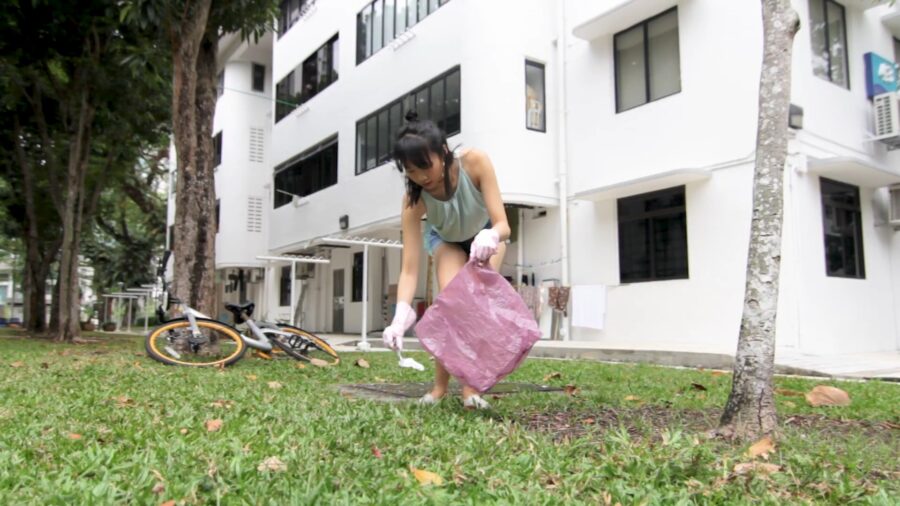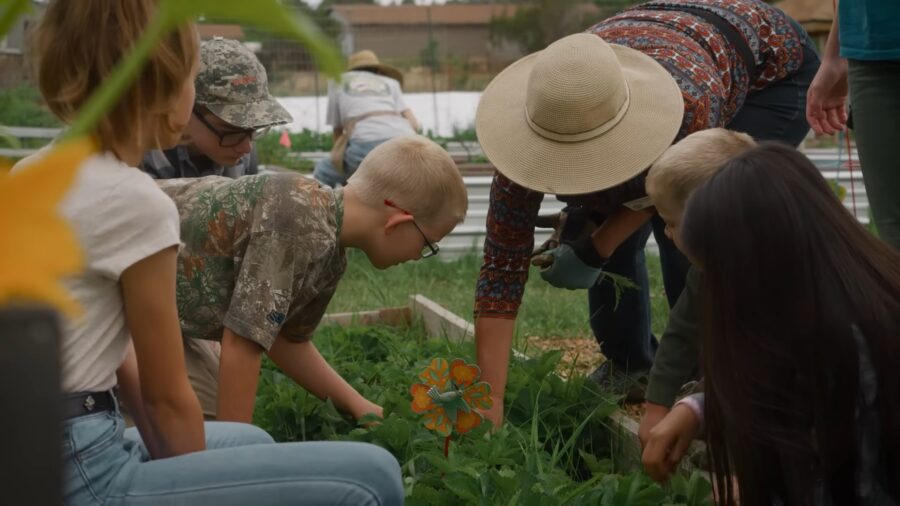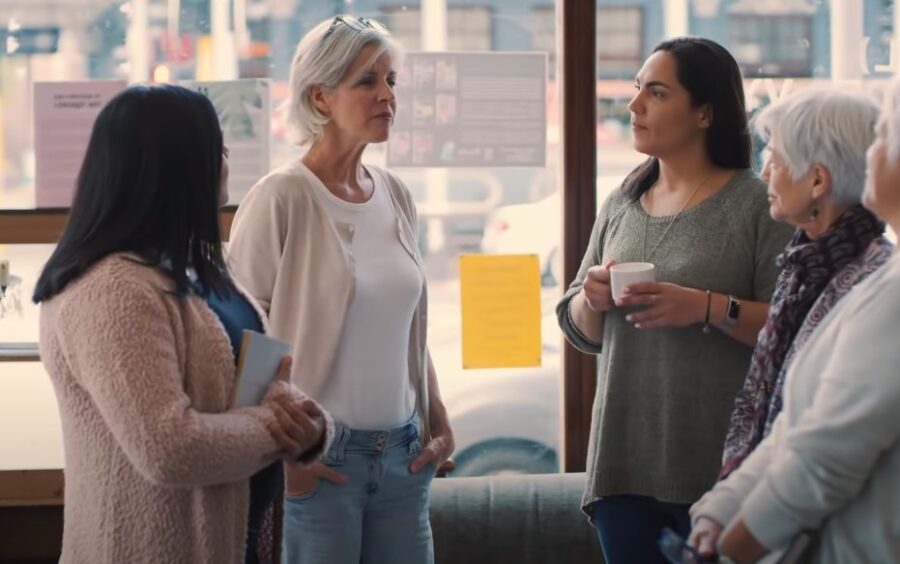Community engagement begins right at your doorstep. Volunteering is a quintessential form of involvement, providing numerous opportunities to connect with and uplift your neighborhood.
Nonprofit organizations, foundations, and charities are often at the forefront of these opportunities, working tirelessly to address societal challenges and improve people’s lives.
Take for instance a local food bank, a homeless shelter, or a youth development organization. They strive to fight hunger, provide shelter, and offer guidance to young individuals, respectively.
The impact of their work is far-reaching, and they heavily rely on the assistance of volunteers. By offering your time and skills, you can contribute to their mission, helping to shape your local community for the better.
The benefits of volunteering are manifold. Not only does it allow individuals to make a significant impact, but it also provides opportunities for personal growth. Volunteering can help you develop new skills, forge new connections, and gain a deeper understanding of societal issues. Furthermore, when people see their peers actively participating in volunteer work, it strengthens communal bonds and inspires others to do the same.
Participating in Cleanup Initiatives

The saying “Cleanliness is next to godliness” holds especially true when we consider our shared spaces. Community cleanliness isn’t just about aesthetics; it’s about fostering an environment that’s healthy, inviting, and sustainable.
Cleanup initiatives come in various forms, from beach cleanups to neighborhood beautification projects. These initiatives are usually open to everyone, making them a perfect opportunity for people to come together and make a tangible impact on their environment. By participating, you not only help improve the physical space of your community but also contribute to the well-being and morale of its residents.
Getting involved in cleanups does more than just keep the surroundings looking their best. It provides substantial environmental benefits, such as reducing pollution and promoting biodiversity. Socially, it fosters a sense of shared responsibility and pride among individuals. When people work together to clean up their neighborhoods, parks, or beaches, they are likely to feel a stronger connection to these spaces and to each other.
Supporting Local Schools and Education
Education is the bedrock of community development. It provides the tools necessary for individuals to improve their lives and contribute to the betterment of their surroundings. As such, supporting local schools and education initiatives is a critical form of involvement.
There are myriad ways you can support education. You might volunteer your time as a tutor or a mentor, providing academic assistance and guidance to students who need it. Donations, whether in the form of school supplies, funds, or time, can also have a significant impact. Community members can even engage with school boards or parent-teacher associations to support policy changes or improvements.
The benefits of involvement in education are enormous. It not only helps schools provide a higher quality education but also shows students that people care about their success. Research has shown that community engagement can lead to higher student achievement, improved school attendance, and more positive attitudes towards education.
Engaging in Garden Projects

Community gardens are pockets of greenery that offer more than just aesthetic value. They are spaces of cultivation, education, and connection, offering rich opportunities for involvement.
Examples of garden projects vary, from growing fresh produce for local food banks to creating spaces for wildlife habitats. Some focus on teaching children about the environment and sustainable farming practices. By getting involved, you can learn about gardening, contribute to a worthy cause, and form relationships with fellow members.
Gardens offer numerous benefits. Environmentally, they promote biodiversity, improve air and soil quality, and offer sustainable local food sources. Socially, they provide spaces for people to connect, collaborate, and learn from each other. Moreover, gardens have been found to increase residents’ sense of ownership and stewardship, which can translate into broader involvement.
Promoting Health and Wellness
Health is a shared asset, and community involvement plays a vital role in promoting it. By supporting health and wellness initiatives, community members can help create environments where everyone has the opportunity to live a healthy, fulfilling life.
Health and wellness initiatives can take many forms. Organizing health fairs, conducting fitness classes, volunteering at clinics, or launching mental health awareness campaigns are just a few examples. By engaging in such activities, individuals not only improve their own health but also contribute to a healthier neighborhood.
When community members actively promote health and wellness, they create ripple effects that benefit everyone. These initiatives can lead to improved public health outcomes, reduce healthcare costs, and create more equitable health conditions. Furthermore, they foster a sense of collective responsibility and interconnectedness among community members.
Supporting Local Businesses and Entrepreneurs

Supporting local businesses is more than an economic act; it’s a form of community involvement that nurtures local economies, promotes innovation, and fosters close-knit communities.
There are numerous ways you can support local businesses and entrepreneurs. Shopping locally, leaving positive online reviews, recommending businesses to friends and family, and sharing their offerings on social media can significantly impact these businesses. These acts of support help local businesses thrive, encourage entrepreneurship, and keep money circulating within the area.
Supporting local businesses benefits the community in various ways. It creates jobs, supports groups through local philanthropy, and contributes to the uniqueness and vibrancy of the area. Moreover, research has shown that local businesses tend to invest more in their neighborhoods, enhancing local resilience and sustainability.
Organizing Community Events and Celebrations
Community events and celebrations are vital in fostering unity, promoting cultural appreciation, and enhancing social cohesion. They are a form of involvement that everyone can participate in and benefit from.
Consider local festivals, parades, farmers’ markets, or holiday celebrations. These events provide a platform for members to showcase their talents, share their cultures, and enjoy shared experiences. Organizing or volunteering at such events can be a rewarding way to contribute to your surroundings.
Participation in events leads to a stronger sense of belonging and shared identity among residents. It encourages mutual understanding and appreciation of diverse cultures and traditions within the community. Furthermore, these events often stimulate local economies, as they attract visitors and encourage local spending.
Participating in Neighborhood Watch Programs

Safety is a collective endeavor, and neighborhood watch programs are a testament to that. They are citizen-led efforts to prevent crime and enhance safety, showcasing the importance of community involvement in creating secure neighborhoods.
Neighborhood watch programs vary widely in their approaches, but their goal is the same: to ensure safety and security. These initiatives encourage residents to stay vigilant, report suspicious activities, and form partnerships with local law enforcement. By participating in a neighborhood watch program, you can contribute directly to the safety of your home and neighbors.
Involvement in neighborhood watch programs yields significant benefits. These programs have been shown to reduce crime rates, foster a sense of unity, and promote greater communication among residents. They empower individuals to take responsibility for their neighborhoods, enhancing collective efficacy and resilience.
Contributing to Environmental Conservation Efforts
Environmental conservation is one of the most profound forms of community involvement. By caring for the environment, we are investing in our future and the future of generations to come.
Examples of local environmental conservation efforts are plentiful. Tree planting initiatives, recycling drives, composting programs, or local conservation campaigns all provide opportunities for individuals to get involved. Through these activities, you can help protect local ecosystems, promote sustainable practices, and create a healthier living environment.
Active involvement in environmental conservation leads to substantial ecological benefits. It can help combat climate change, preserve biodiversity, and promote sustainable resource use. Moreover, it fosters environmental awareness among members, inspiring more sustainable behaviours and lifestyle choices.
Mentoring and Guiding Youth
Mentoring is a powerful way to invest in the future of the community. By guiding and supporting young people, mentors can help shape a generation of informed, confident, and civic-minded individuals.
Numerous organizations offer mentoring programs that cater to various needs and interests. By becoming a mentor, you can provide valuable guidance to a young person, offering advice, support, and positive role modeling. This experience can be rewarding and transformative for both the mentor and the mentee.
Involvement in mentoring can have lasting impacts. It can lead to improved academic performance, higher self-esteem, and better interpersonal skills among youth. Moreover, mentors often report personal growth and increased sense of purpose, proving that the benefits of mentoring go both ways.
Assisting Elderly and Vulnerable Community Members
Caring for the most vulnerable among us is a fundamental aspect of community involvement. By supporting elderly and vulnerable individuals, we build neighborhoods that are compassionate, inclusive, and resilient.
There are various ways to assist the elderly and vulnerable. Volunteering at senior centers, delivering meals, offering companionship, or providing transportation services are some of the ways to show support. These acts of kindness can make a significant difference in the lives of those who may feel isolated or marginalized.
Involvement in supporting the elderly and vulnerable enhances social cohesion and mutual care. It fosters a culture of respect and empathy, strengthens social networks, and improves the quality of life for all community members. Furthermore, it can inspire others to act compassionately, creating a cycle of kindness and care.
Engaging in Political and Civic Activities

Engaging in political and civic activities is a cornerstone of a vibrant, democratic society. It’s a way for individuals to have their voices heard, participate in decision-making processes, and shape the community’s future.
Political and civic activities can range from voting in local elections to attending town hall meetings, from volunteering for campaigns to running for office. Through these activities, individuals can influence public policies, advocate for their interests, and contribute to social progress.
Involvement in politics and civic activities is crucial in building democratic, responsive, and inclusive communities. It enhances political literacy, promotes accountability, and fosters civic pride. Moreover, it encourages dialogue and collaboration among community members, contributing to more informed and balanced decisions.
Conclusion
Community involvement is a multifaceted concept that extends far beyond our usual understanding. It is a process of engaging, learning, growing, and contributing towards a better, healthier, and stronger community.
The various outlines provided in this blog post emphasize the importance of community involvement in different spheres, ranging from volunteering and education to political engagement and environmental conservation. Each of these areas holds a significant potential for improvement and growth, both for individuals and for the larger community.
Ultimately, it is through our combined efforts and shared commitment that we can enhance the quality of life and build resilient, vibrant, and sustainable communities. So, let’s all take a step forward and become more involved in our neighborhoods today for a better tomorrow.

